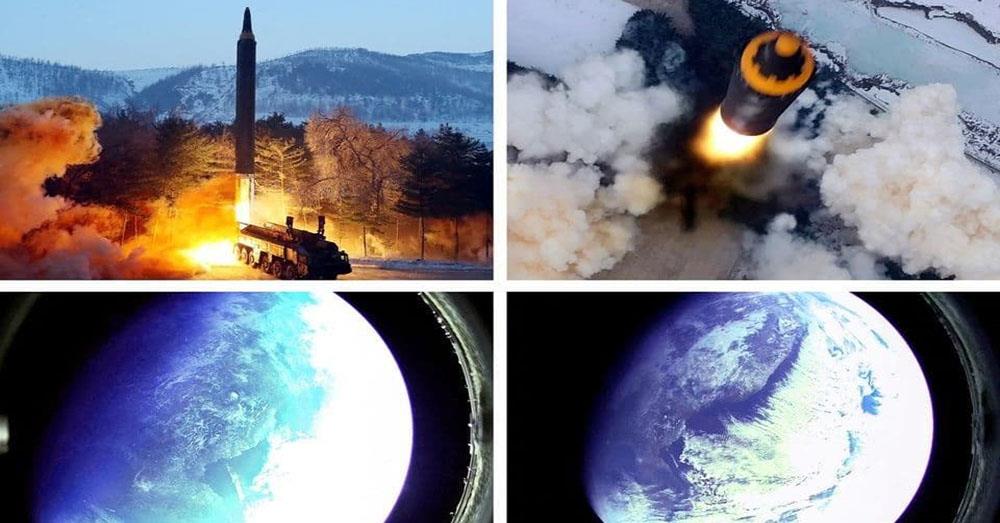SEOUL, Jan 31 (Reuters) - North Korea confirmed on Monday it had tested a Hwasong-12 intermediate-range ballistic missile (IRBM), state media reported, as U.S. and South Korean officials warned Sunday's launch could lead to resumed testing of long-range weapons and nuclear bombs.
It was the seventh conducted by North Korea this month and the first time a nuclear-capable missile of that size had been launched since 2017.
The launch was first reported by South Korean and Japanese authorities on Sunday, who condemned it as a threat to regional security.
"The inspection firing test was conducted for the purpose of selectively inspecting the ground-to-ground mid-range long-range ballistic missile Hwasong-12 and verifying the overall accuracy of this weapon system," North Korean state news agency KCNA said. North Korea has previously said the Hwasong-12 can carry a "large-size heavy nuclear warhead."
KCNA said the missile launch was conducted in such a way as to ensure the safety of neighbouring countries, and that the test warhead was fitted with a camera that took photos while it was in space.
Photos released by state media showed space-based images of North Korea and the surrounding areas through a round camera lens. North Korea first took such photos in 2017, analysts said.
Leader Kim Jong Un was not reported to have attended the test, which was at least the seventh launch in January, one of the busiest ever for North Korea's advancing missile programme.
On Sunday South Korean President Moon Jae-in said the launch takes North Korea a step closer to fully scrapping a self-imposed moratorium on testing its longest-range intercontinental ballistic missiles (ICBMs).
Kim has said he is no longer bound by that moratorium, which included a stop to nuclear weapons tests and was announced in 2018 amid a flurry of diplomacy and summits with then-U.S. President Donald Trump.
North Korea suggested this month it could restart those testing activities because the United States and its allies had shown no sign of dropping their "hostile policies."


